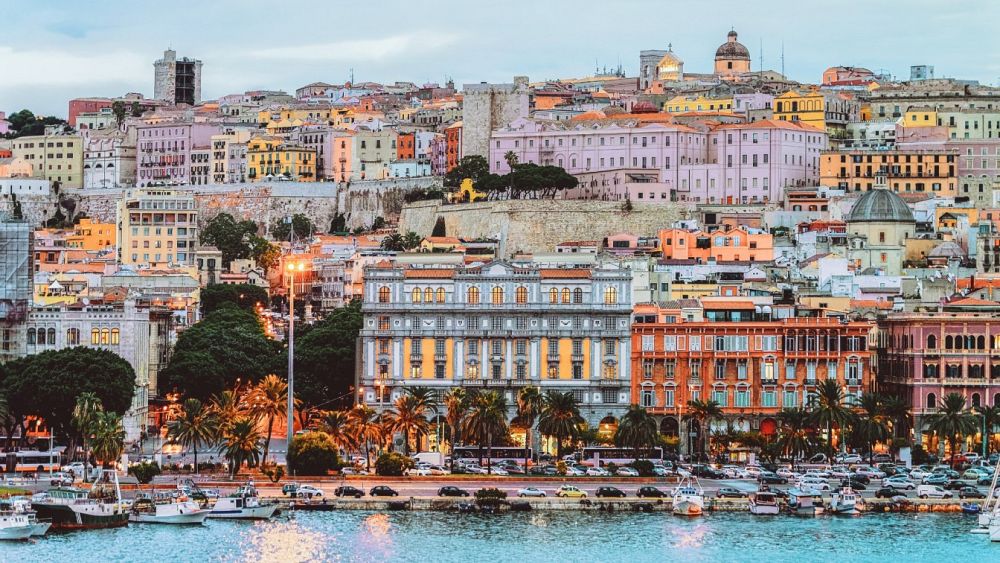Start a new life abroad and get paid to do it thanks to these programs.
Across Europe, cities with shrinking populations have come up with a radical solution to attract new residents by offering generous cash incentives.
Many rural areas are facing an aging population as young people move to cities or choose not to have children.
To combat this problem, some local governments are encouraging foreigners to take up residency with relocation grants and cash payments.
From Spain to Italyhere are all the places in Europe that will pay you to move there.
Contenuti
ToggleWake up to alpine views in Albinen, Switzerland
Albinen in the Swiss Alps is home to fewer than 250 residents. To increase its population, the small municipality is offering to pay families more than 50,000 euros to move there.
Perched on a mountain in the canton of Valais, the picturesque village is just over an hour’s drive from the popular ski resort Verbier.
Adults under 45 will receive 25,000 Swiss francs (25,300 euros) to move there, plus 10,000 Swiss francs (10,120 euros) per child.
The scheme is open to only Swiss citizens or eligible foreigners who have lived in Switzerland long enough to obtain a residence permit C.
Applicants must also live in a house worth at least 200,000 Swiss francs (202,310 euros) and must commit to living in Albinen for 10 years.
The local council says it receives up to 100 applications a day, so be prepared to be patient if you’re thinking of making an application.
Mountain escape to Ponga, Spain
Ponga, a town and municipality of 600 inhabitants in the north-west Spain, will pay the English 2,600 pounds (2,971 euros) each to move there. A further £2,600 will be donated for every baby born there.
With a UNESCO-designated biosphere reserve in the heart of the Cantabrian Mountains on your doorstep, the city is a hiker’s paradise. It’s also only an hour’s drive from the coast.
To take advantage of the offer, Brits must commit to living in Ponga for at least five years.
Get a slice of the quiet life in Rubia, Spain
THE Spanish Rubia village in Galicia will pay expats up to 150 euros a month to live there.
The program is aimed at families with the hope of increasing the number of students in local schools.
Rubia is located in the northwest Spaina 2.5 hour drive east of Santiago de Compostela.
Explore the beaches and villages of sunny Calabria, Italy
In Calabria, ItalyIn the southwestern region of, moving to a village with 2,000 residents or fewer will earn you up to €28,000.
The initiative hopes to combat depopulation.
Those interested in applying must be at least 40 years old and move to the region within 90 days of application acceptance.
They also need to start a business or find work in an industry that needs more workers. This includes restaurants, hotels, bed and breakfasts and shops.
Relax on the pristine beaches of Sardinia, Italy
The Italian island of Sardinia offers people 15,000 euros to move there.
Known for its sandy beaches, blue skies and turquoise waters, the Mediterranean idyll faces dwindling rural population numbers as young locals move abroad for work.
To combat this exodus, the government has allocated over 45 million euros for the relocation subsidy, enough to cover 3,000 grants.
To be entitled to the contribution you will have to move to a Sardinian municipality with a population of less than 3,000 inhabitants.
The money must also be used to purchase or renovate a house. The contribution cannot exceed half of the total cost of the house or renovation, which means, in some cases, a reduction of the sum of 15,000 euros.
Recipients must live there full time and must register permanently residence in Sardinia within 18 months of arrival.
Another Sardinian initiative involves the municipality of Ollolai welcome remote workers with three months’ rent free.
Go off-grid to a remote Irish island
Ireland offers generous offers cash incentives to people willing to move to one of the nation’s remote islands.
The initiative is part of the government’s ‘Our Living Islands’ policy, which aims to boost the population of 30 communities unconnected to the mainland by bridges and cut off by the tides.
Under the project, the Irish government will pay over €80,000 to new residents of offshore communities.
Prospective residents must purchase and own a property in one of the islands. The building must have been built before 1993 and have been unoccupied for at least two years.
Image:Getty Images






